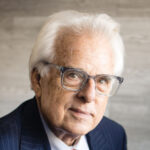The mainstream media — under the influence of spin from “the scientists” — has been playing a game of hide-the-ball about the recent first human cloning success. For example, the LA Times threw a lot of dirt in the air by calling the success merely an “incremental step” toward human cloning. No. It. Was. Human Cloning. Many stories also reported falsely that eggs were turned directly into embryonic stem cells — omitting the ethically controversial steps in which cloned embryos were created and then destroyed for the cells. Ignorance or bias? Both, says I.
Ah, but the science journals have told a different story, meaning that at least to some degree, the scientists have said one thing to each other — honestly describing what happened — and another to the rest of us. We see the honesty-to-other-scientists approach again in a story discussing questions that have arisen regarding the paper itself. From the Nature News story:
A blockbuster paper that reported the creation of human stem cell lines via cloning has come under fire. An anonymous online commenter found four problems in the paper, which was published online 15 May in the journal Cell.
STOP! Notice the words, “via cloning.” Enough of the obfuscation, scientists and media! But back to the trouble in Paradise:
Many scientists were shocked that Cell accepted the paper in just three days, especially given the scientific and ethical controversies surrounding the field of cloning. The last group that claimed to have created human embryonic stem cell lines from cloning — led by Woo Suk Hwang, then a professor at Seoul National University — produced two papers, in 2004 and 2005, which both turned out to be full of fabricated data that papered over the fact that the group had never produced cloned cell lines. The first doubts to emerge came in the same form: duplicated and manipulated images.
“Whatever the explanation is, it’s amazing that there is another issue with a paper in SCNT. The four-day review process was obviously inadequate,” says Arnold Kriegstein, director of the stem cell program at the University of California, San Francisco. “It’s a degree of sloppiness that you wouldn’t expect in a paper that was going to have this high profile. One worries if there is more than meets the eye and whether there are other issues with the work that are not as apparent.”
They rushed because — despite the soothing assurances to us yahoos — it was human cloning and human cloning is a very big deal. Indeed, as I have written elsewhere, it is an ethical earthquake.
I don’t expect this to be a fraud. Human cloning is here. We have to deal with it.
Author Profile

Latest entries
- BlogJanuary 27, 2015Ready or Not: Here Comes 2015 in Bioethics!
- BlogOctober 20, 2014A Case of Surrogacy’s Gordian Knot
 BlogAugust 19, 2014Transhumanism’s Eugenic Authoritarianism
BlogAugust 19, 2014Transhumanism’s Eugenic Authoritarianism- BlogAugust 13, 2014Suicide Cult Pushes Home Made Suicide Kits

